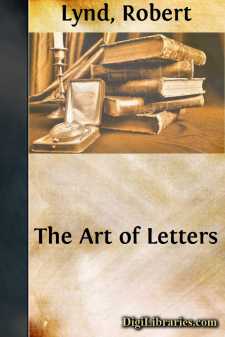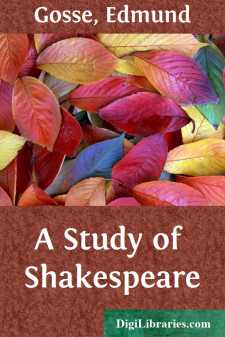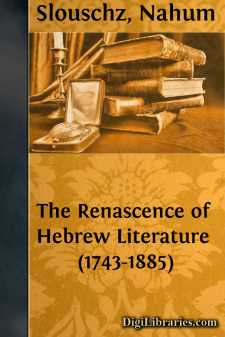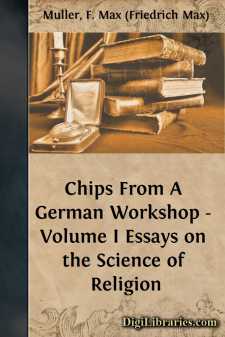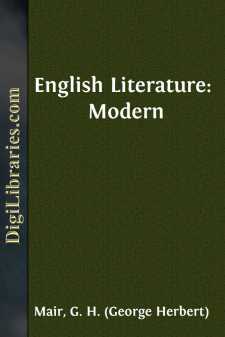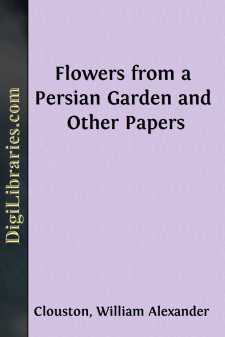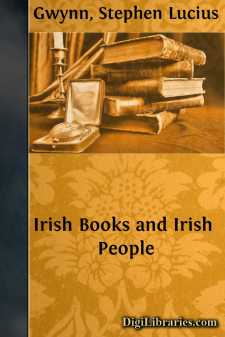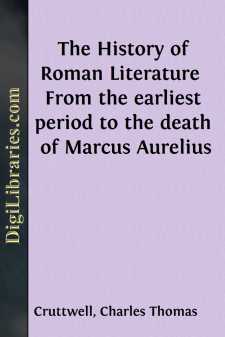Literary Criticism
- American 18
- Ancient and Classical 3
- Asian 1
- Australian & Oceanian 1
- Books & Reading 8
- Caribbean & Latin American 2
- Drama 2
- English, Irish, Scottish, Welsh 49
- European 7
- General 37
- Horror 1
- Humor 2
- Jewish 2
- Medieval 2
- Middle Eastern 3
- Poetry 7
- Renaissance 6
- Russian & Former Soviet Union 1
- Shakespeare 27
Literary Criticism Books
Sort by:
by:
Robert Lynd
I.—Mr. Pepys Mr. Pepys was a Puritan. Froude once painted a portrait of Bunyan as an old Cavalier. He almost persuaded one that it was true till the later discovery of Bunyan’s name on the muster-roll of one of Cromwell’s regiments showed that he had been a Puritan from the beginning. If one calls Mr. Pepys a Puritan, however, one does not do so for the love of paradox or at a guess. He tells...
more...
by:
Walter Pater
STYLE [5] SINCE all progress of mind consists for the most part in differentiation, in the resolution of an obscure and complex object into its component aspects, it is surely the stupidest of losses to confuse things which right reason has put asunder, to lose the sense of achieved distinctions, the distinction between poetry and prose, for instance, or, to speak more exactly, between the laws and...
more...
by:
Edmund Gosse
I. The greatest poet of our age has drawn a parallel of elaborate eloquence between Shakespeare and the sea; and the likeness holds good in many points of less significance than those which have been set down by the master-hand. For two hundred years at least have students of every kind put forth in every sort of boat on a longer or a shorter voyage of research across the waters of that unsounded...
more...
by:
Samuel Johnson
Dr. Johnson's Preface to Shakespeare is one of the most famous critical essays of the eighteenth century, and yet too many students have forgotten that it is, precisely, a preface to the plays of Shakespeare, edited by Dr. Johnson himself. That is to say, the edition itself has been obscured or overshadowed by its preface, and the sustained effort of that essay has virtually monopolized scholarly...
more...
by:
Nahum Slouschz
INTRODUCTION It was long believed that Hebrew had no place among the modern languages as a literary vehicle. The circumstance that the Jews of Western countries had given up the use of their national language outside of the synagogue was not calculated to discredit the belief. The Hebrew, it was generally held, had once been alive, but now it belonged among the dead languages, in the same sense as the...
more...
PREFACE. ore than twenty years have passed since my revered friend Bunsen called me one day into his library at Carlton House Terrace, and announced to me with beaming eyes that the publication of the Rig-veda was secure. He had spent many days in seeing the Directors of the East-India Company, and explaining to them the importance of this work, and the necessity of having it published in England. At...
more...
CHAPTER I THE RENAISSANCE (1) There are times in every man's experience when some sudden widening of the boundaries of his knowledge, some vision of hitherto untried and unrealized possibilities, has come and seemed to bring with it new life and the inspiration of fresh and splendid endeavour. It may be some great book read for the first time not as a book, but as a revelation; it may be the first...
more...
I SKETCH OF THE LIFE OF THE PERSIAN POET SAADI—CHARACTER OF HIS WRITINGS—THE “GULISTÁN”—PREFACES TO BOOKS—PREFACE TO THE “GULISTÁN”—EASTERN POETS IN PRAISE OF SPRINGTIDE. It is remarkable how very little the average general reader knows regarding the great Persian poet SaádÐÑ and his writings. His name is perhaps more or less familiar to casual readers from its being...
more...
INTRODUCTION. My publisher must take at least some of the responsibility for reviving these essays. All bear the marks of the period at which they were written; and some of them deal with the beginnings of movements which have since grown to much greater strength, and in growing have developed new characteristics at the expense of what was originally more prominent. Other pages, again, take no account...
more...
INTRODUCTION. In the latter part of the seventeenth century, and during nearly the whole of the eighteenth, the literature of Rome exercised an imperial sway over European taste. Pope thought fit to assume an apologetic tone when he clothed Homer in an English dress, and reminded the world that, as compared with Virgil, the Greek poet had at least the merit of coming first. His own mind was of an...
more...


